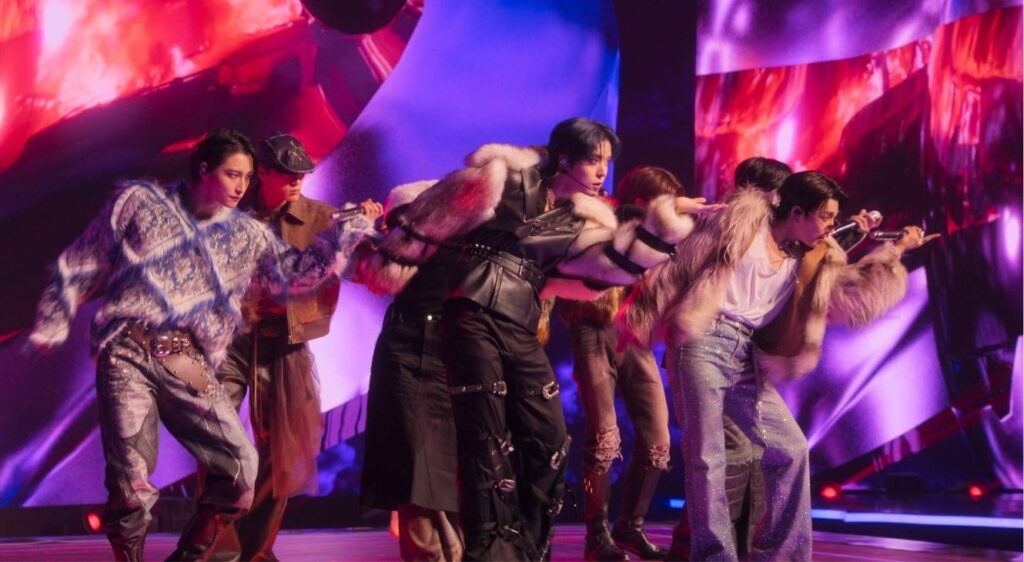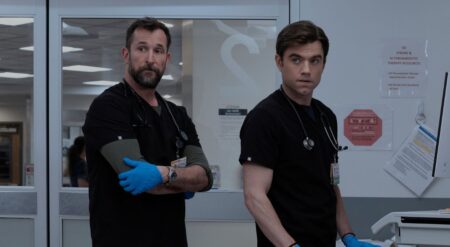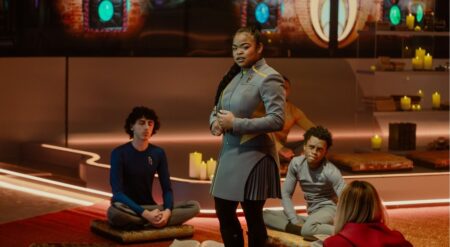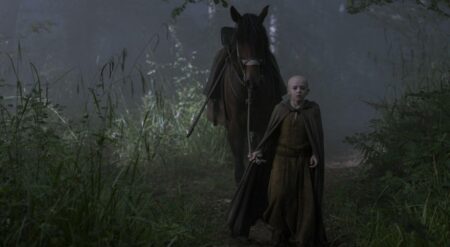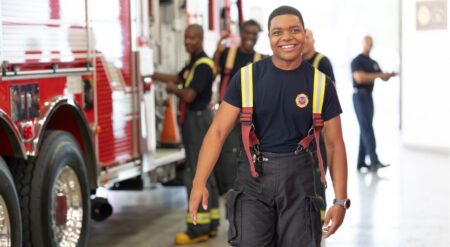K-pop has never been more popular. With K-pop groups selling out concerts worldwide and global hit sensation K-pop Demon Hunters proving its universal appeal, it’s everywhere. Now, it’s getting some further spotlight on streaming service Apple TV+ with the reality TV series, KPOPPED. Starring PSY and Megan Thee Stallion, this song battle series brings iconic Western artists and hit K-pop groups together to produce magic. Unfortunately, despite the promise of its premise, the execution lacks the necessary spark to keep viewers hooked.
Executive produced by Lionel Richie, Miky Lee, and Megan Thee Stallion, each episode follows roughly the same format. A K-pop group (or, in one episode, a J-pop group) starts things off with an introductory performance before we get to see who each group will be paired off with. The goal? To K-poppify a hit song from each artist, with the winning group getting bragging rights and the memory of working with one of these hit (past and present) American, British, and Latin artists.
Once each group is assigned to their respective artist, each group gets a chance to take the artist out on an outing of their choosing. Ranging from amusement park outings to burning Megan Thee Stallion’s taste buds with the spiciest ramen to a cultural Korean dance lesson, these outings showcase a tiny glimpse into Korean culture. Some of the best outings occur when the group has done research into what their artist is interested in, resulting in more emotional moments, as seen in the case of Boy George’s outing with STAYC.
With more time before performances, KPOPPED could offer viewers more personal moments with each group.
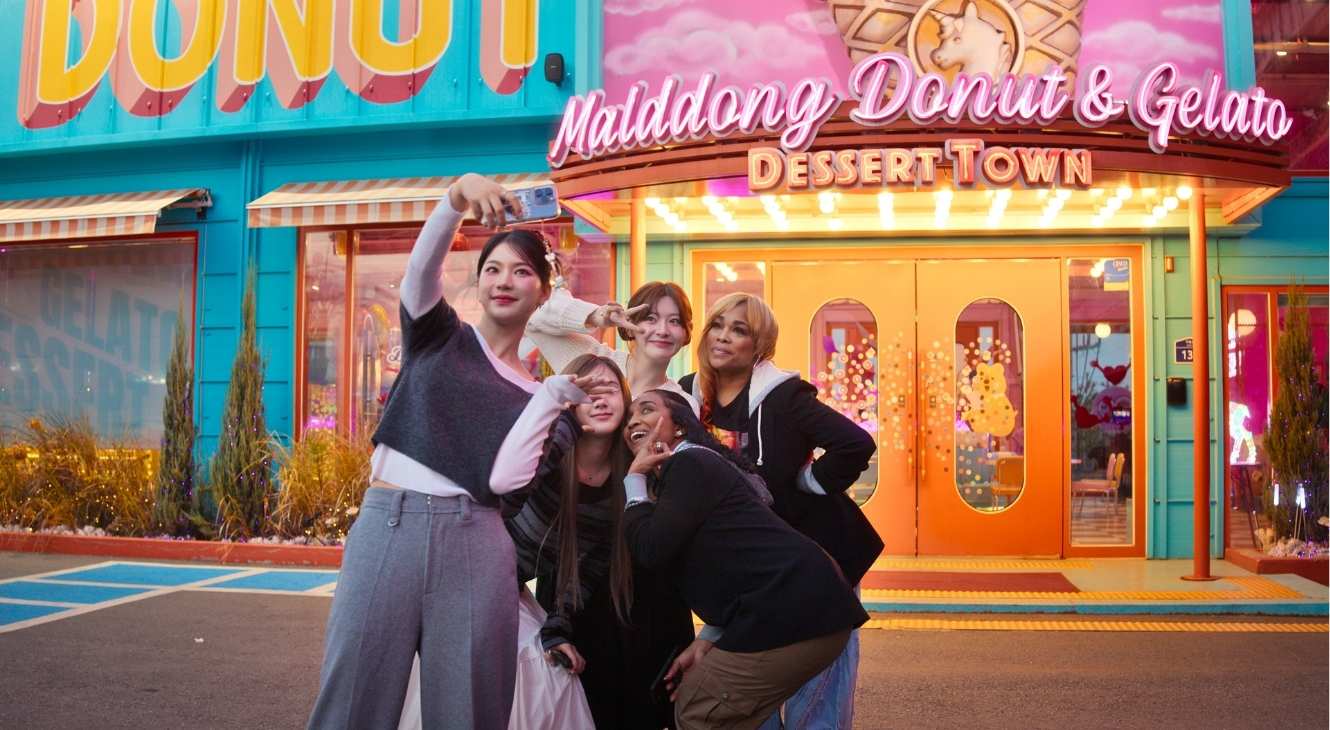
Other outings don’t fare as well, though this could be more attributed to cultural differences and miscommunications. For example, Taylor Dayne loses face when confronted with a traditional Korean ingredient in a cooking class, and what should be a bonding cooking moment between her and her group gets a little tense. Meanwhile, a funny moment arises over Mel B’s age during a traditional Korean tea service.
Once the outings are complete, each group begins preparing for its mainstage performance. It is here where we get a sampling of the K-poppified version of songs like Spice Girls’ “Wannabe,” Vanilla Ice’s “Ice Ice Baby,” and Kylie Minogue’s “Can’t Get You Outta My Head”.
Some songs convert better to K-pop than others, but the real test is how each mainstream Western artist handles group work, resulting in numerous challenges for the performers. It’s a clash of working styles that should generate more drama, but the final edit shows little.
That doesn’t mean that we don’t get to see the cracks in KPOPPED. Nearly everyone encounters issues, with most Western artists becoming overwhelmed at some point during the process. A couple try to assert control, with perfectionism taking hold.
Others get flustered, with some disassociating (though the jetlag also likely doesn’t help matters). With only 48 hours between introductions and needing to deliver a final performance, there is little time to deliver something smooth and impactful that will sway voters.
Even still, with these brief flashes of vulnerability, there’s a glimpse into the potential for making these celebrities more relatable that isn’t quite touched on. The celebrities who truly shine and connect with the audience are generally those who are more authentic in themselves, but also willing to have fun. Megan Thee Stallion is a great example of this, being open and honest from start to finish. As the series’s opener, her example sets a high bar for the other celebrities who follow, and not everyone is as captivating or charismatic.
Performers who form genuine connections and are willing to have fun tend to do better in KPOPPED.
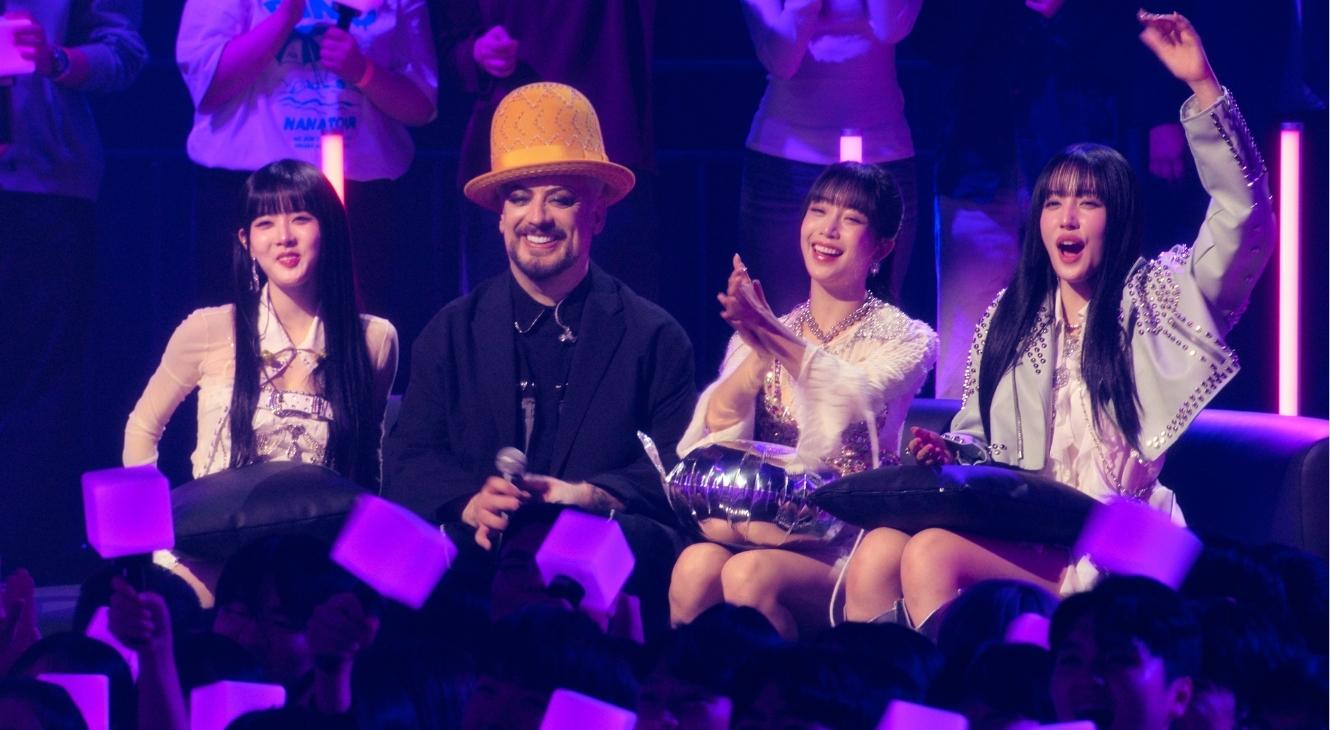
The K-pop groups fare a bit better, particularly in terms of their kindness and professionalism. Featuring groups like ATEEZ, ITZY, and Billlie, among others, these K-pop groups have undergone years of intense training to become incredibly disciplined and well-rounded performers.
With a greater emphasis and pressure placed on idols and celebrities to be perfect in Korean media, there’s no room for mistakes. An additional layer is added as these K-pop groups are placed in the position of hosts, too, in their respective outings.
Once rehearsals are done, it is time for the final performances. It is here that you can gauge who comes out on top, but also occasionally how unbalanced the song choices and performer limitations can be in certain episodes. For example, Boyz II Men’s “End of the Road” is a ballad, offering less flexibility in terms of movement.
Despite ballads being an aspect of the K-pop genre, in a competition-like setting, it creates a naturally difficult challenge for a performer to tap into the necessary emotion needed to make an evocative performance. And to compete against the more upbeat, fun song “Motownphilly,” the odds are too unevenly stacked.
It is no easy feat to prepare a fully choreographed performance of an updated version of your song in 48 hours, so every single group should commend themselves for the challenge. Outside of a few jerky moments here and there in the choreography and an occasional lack of synchronization, every team does a good job. In voting, it ultimately comes down to the people in the audience to determine who is best. When you think you can predict where things are going, there are occasional surprises.
The format of KPOPPED, once broken down, is pretty standard. There’s nothing wrong with a formula. What would make each episode pop a little bit more is showing a bit more of the personal side. However, in reality TV, you often have to work with what you’ve got, and if there’s not much to work with, then there’s not much else that can be done.
Despite starring in KPOPPED, Psy and Megan Thee Stallion aren’t super present after Episode 1.
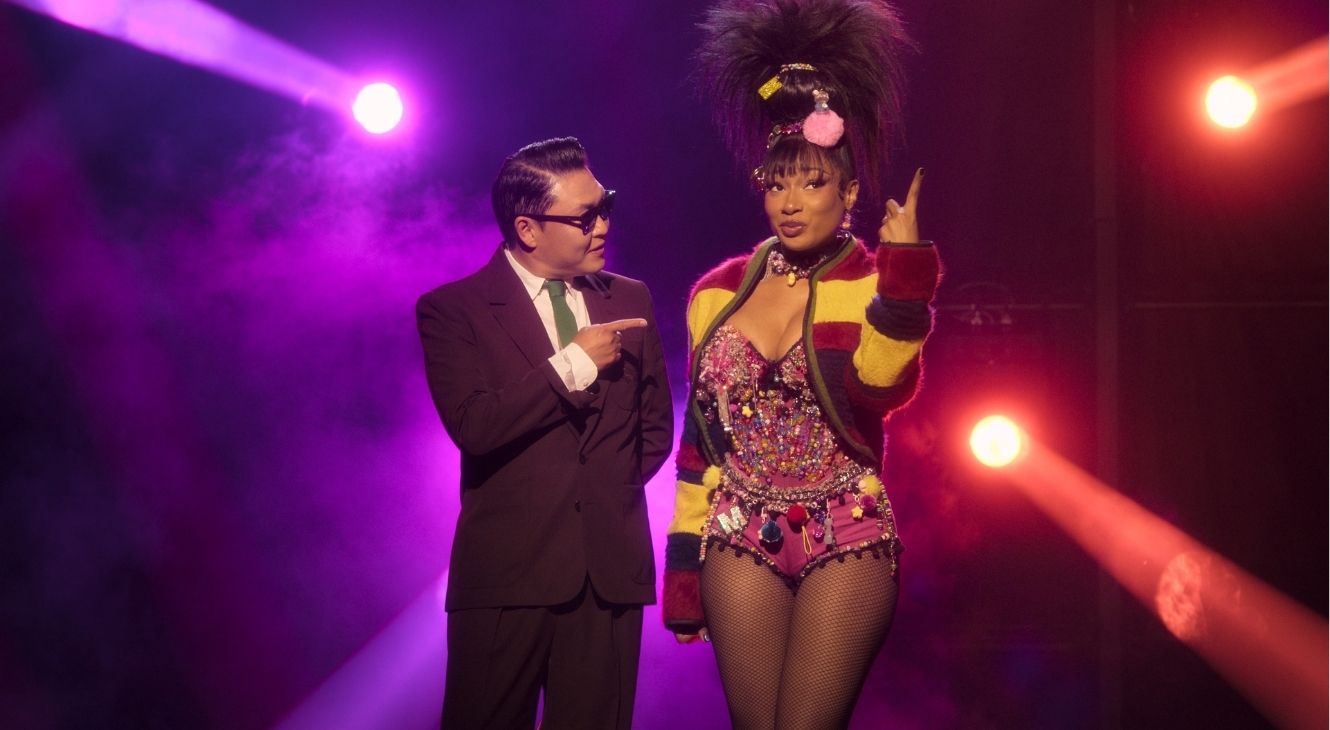
This leads me to the inclusion, or mostly lack thereof, of PSY and Megan Thee Stallion. Following the Megan Thee Stallion opening episode, the drastic shift to her partnered scenes with PSY significantly limits her appearances. Given the hype surrounding their starring presence here in KPOPPED, their occasional banter before introducing the episode’s group of the week is pretty underwhelming. Additionally, PSY’s rooftop-recorded moments before voting do little to connect with the audience.
I know I’ve been harping on connection here, but part of what makes reality TV shine is how the audience can connect with the people on screen. In KPOPPED, it’s as if we, the viewer, are kept at arm’s length, given how little we get to see. We want to cheer on the groups. We want to experience their highs and lows in a competition. And, for those coming into KPOPPED with minimal knowledge of the groups and performers on screen, that arm’s length barrier can be a detriment rather than a benefit in getting viewers invested.
There were a couple of instances in KPOPPED Episode 4, featuring J01, that were a little tone-deaf. They are a popular J-Pop group in Korea, and while their music has a lot of K-Pop influences, they are a Japanese group. Yet, there are a couple of instances where they are referred to as a K-Pop group, which, while they can be chalked up to instances of ignorance, are still likely to cause some drama given historical and cultural significance.
That all being said, KPOPPED has some serious potential. The starpower on both sides of the aisle is undeniable. Seriously, Pattie LaBelle? Come on! The production quality is outstanding, and the performances delivered were exceptional.
The talent onscreen is undeniable. Unfortunately, the series lacks the special sauce of connection and intimacy that reality TV needs. This is the substance that viewers hold onto long after a show ends. And, unfortunately, with a couple of notable exceptions, there’s not much to hold onto once these credits roll.
KPOPPED premieres globally on Apple TV+ on August 29, 2025.
KPOPPED
-
Rating - 6.5/106.5/10
TL;DR
KPOPPED lacks the special sauce of connection and intimacy that reality TV needs. This is the substance that viewers hold onto long after the show ends.

